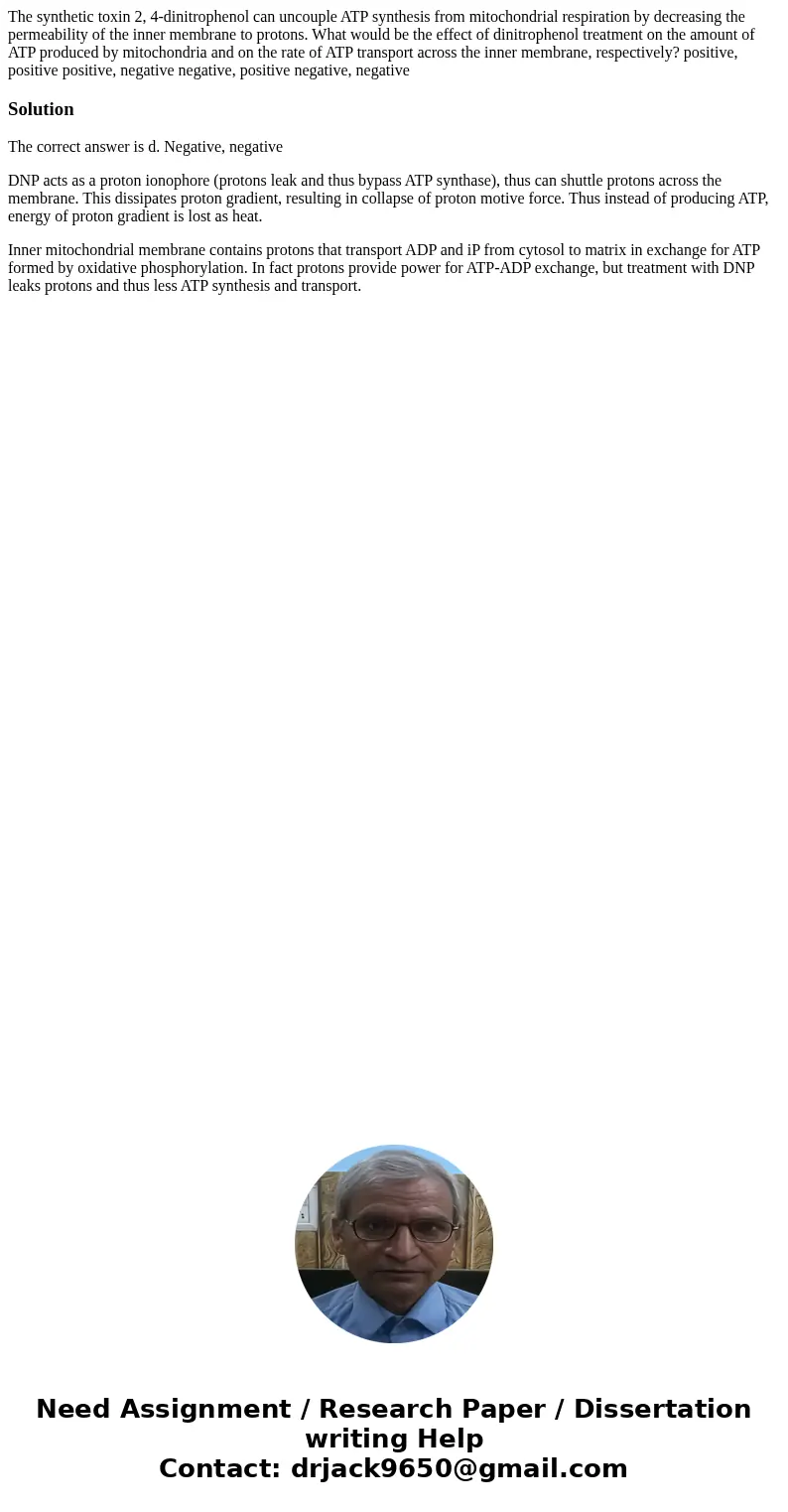The synthetic toxin 2 4dinitrophenol can uncouple ATP synthe
The synthetic toxin 2, 4-dinitrophenol can uncouple ATP synthesis from mitochondrial respiration by decreasing the permeability of the inner membrane to protons. What would be the effect of dinitrophenol treatment on the amount of ATP produced by mitochondria and on the rate of ATP transport across the inner membrane, respectively? positive, positive positive, negative negative, positive negative, negative
Solution
The correct answer is d. Negative, negative
DNP acts as a proton ionophore (protons leak and thus bypass ATP synthase), thus can shuttle protons across the membrane. This dissipates proton gradient, resulting in collapse of proton motive force. Thus instead of producing ATP, energy of proton gradient is lost as heat.
Inner mitochondrial membrane contains protons that transport ADP and iP from cytosol to matrix in exchange for ATP formed by oxidative phosphorylation. In fact protons provide power for ATP-ADP exchange, but treatment with DNP leaks protons and thus less ATP synthesis and transport.

 Homework Sourse
Homework Sourse